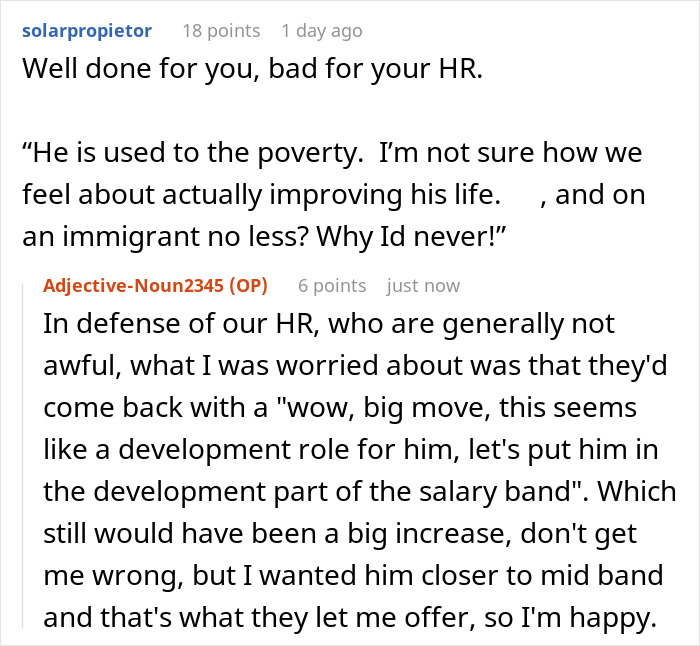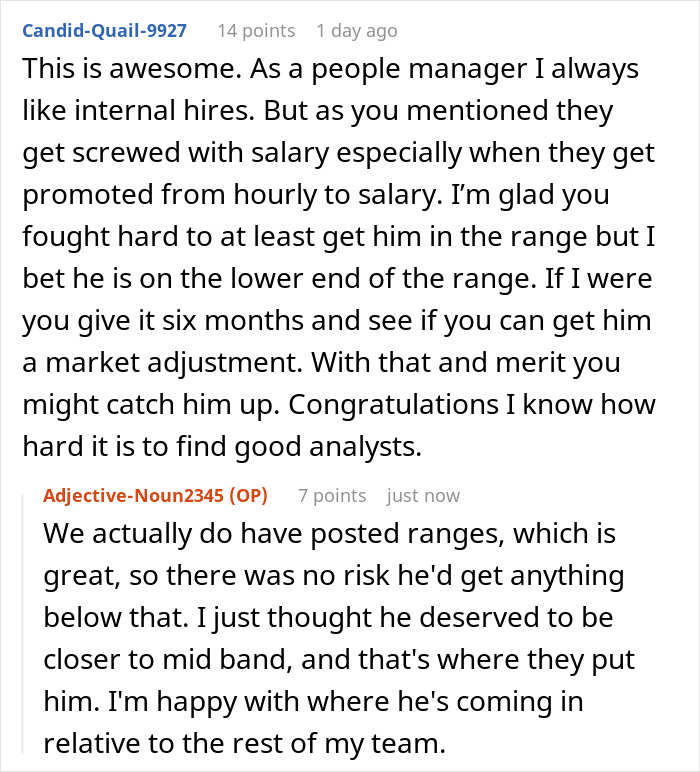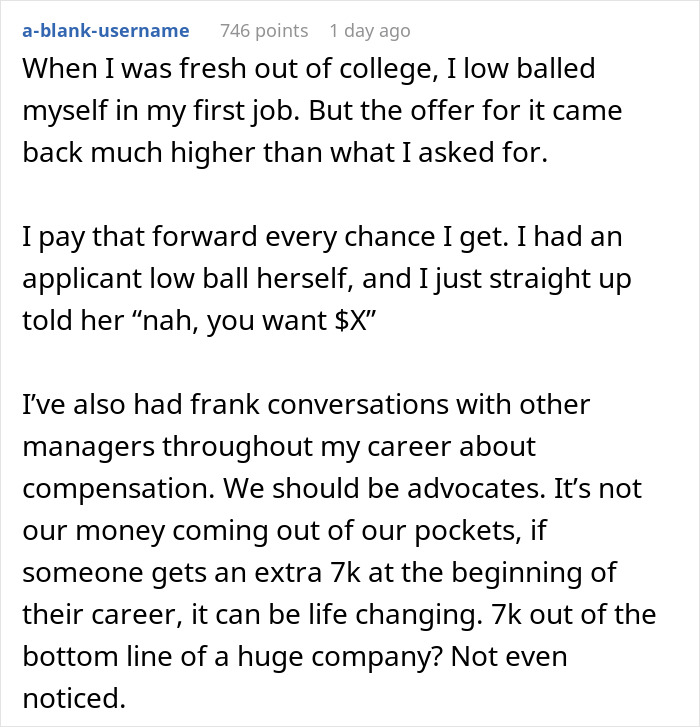Do you remember that episode of The Big Bang Theory where no one wants to be on Sheldon’s team at the physics tournament, so he recruits a local janitor to join his team, who suddenly turns out to be a brilliant immigrant scientist who just had bad luck finding a job in his field?
Well, any satire sooner or later finds itself in real life. And here is the proof – this story from the user u/Adjective-Noun2345, which we’ll tell you today. The story is about how little we sometimes know about people who have been close to us for years…
More info: Reddit
The author of the post is the head of an analyst team in a big company and recently they hired a new specialist

Image credits: Tiger Lily (not the actual photo)
The guy had been working in the company for all of last year as a warehouse worker, actually slinging the boxes
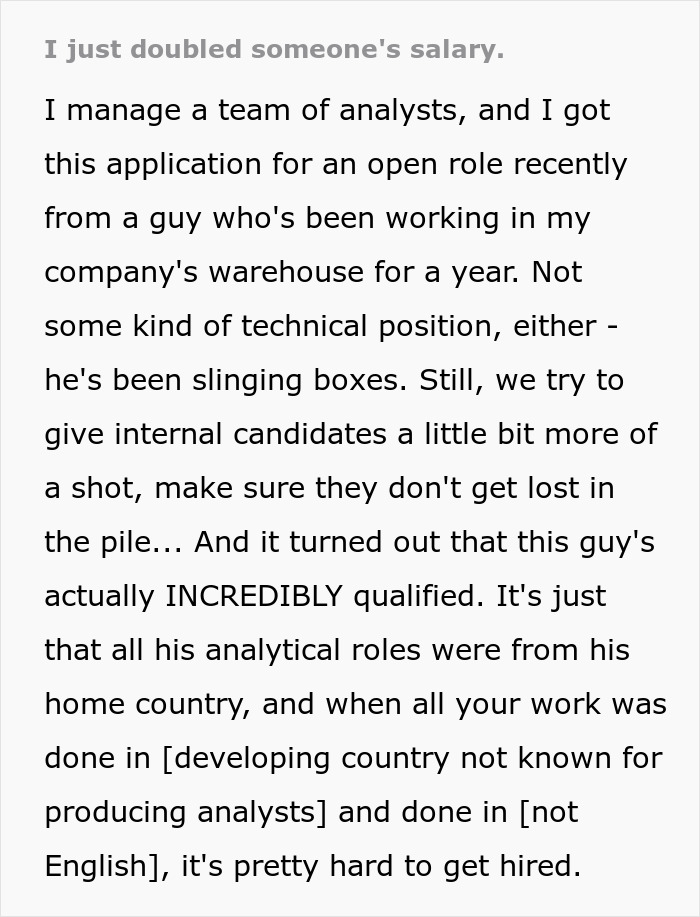
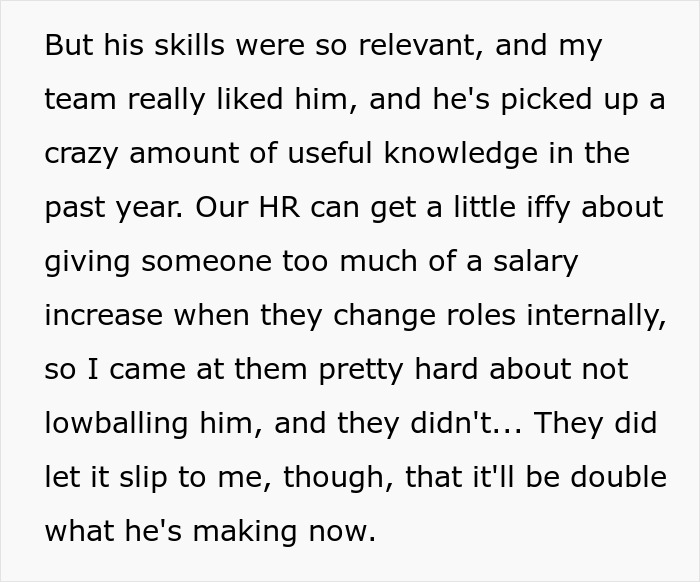
Image credits: u/Adjective-Noun2345
However, he turned out to be a damn qualified analyst – as he used to do the same job in his home country

Image credits: PiggyBank (not the actual photo)


Image credits: u/Adjective-Noun2345
Needless to say, the guy got this job – and his salary actually doubled

Image credits: krakenimages (not the actual photo)

Image credits: u/Adjective-Noun2345
The only thing the author had to do was to text the HR something like “Do not lowball him!”
So, now meet the Original Poster (OP) – the head of a team of analysts, who once received an application for a vacant position from another employee of the company. However, no one even suspected that he might even have any knowledge in this area. The guy had worked for a whole year in the company’s warehouse, where, according to the author, he’d been slinging boxes.
It’s far from a fact that his candidacy would have been considered at all, but the company’s policy implies the possibility of promoting internal candidates, so the guy was given a chance… And suddenly it turned out that he was incredibly qualified. No, not even that. INCREDIBLY QUALIFIED. There, that looks more correct.
Our hero made some inquiries – and it turned out that in his home country, this employee worked precisely as an analyst, and made some great progress. But, you must admit, it would be difficult for a person from a developing country whose work was mainly done not in English to get hired in his specialty in the USA.
After this, the main task of the original poster, in his own words, was to write several messages to the HR guys who doubted the salary of the new analyst – after all, his wages instantly doubled. So the OP just texted “Do not lowball him!” The guy ended up incredibly happy, as his life had done a 180 literally within a couple of days…
According to the author, he actually didn’t do anything outstanding or really noble – after all, his team received a great specialist, and the salary he will receive is quite standard for the market. “This is a logical action that just happens to also be nice,” the original poster modestly states.

Image credits: Annie Spratt (not the actual photo)
And yet people in the comments actively praised the original poster for doing a good job and acting honorably by not allowing the HR to lowball the new employee. “Well done friend,” one of the commenters wrote. “This is the wholesome content we needed for today,” another person added. “You are a great person OP!” someone summarized.
“By the way, the situation is quite typical for the international labor market, when highly qualified specialists with big work experience move to another, more prosperous country, and are actually forced to take several steps back in their career, and sometimes simply start from scratch,” says Olga Kopylova, Ph.D., associate professor of economics at Odessa National Maritime University, to whom Bored Panda reached out for a comment here.
“Firstly, if there’s no agreement between countries on the mutual recognition of university diplomas, then no matter how highly qualified the worker is, they will have to prove it for a long time, by nostrifying their diploma. Secondly, often these people don’t know the language of the country where they are moving, in a level sufficient for seamless integration into the workflow in the same specialty.”
“But still, often many qualified specialists have to go a very long way in a new place in order to achieve at least the same career position that they had in their homeland. And some, alas, have to completely change their path in life. These are realities of contemporary business,” Olga concludes.
Meanwhile, many people in the comments also noted that the situation described in the original post (more precisely, its first part) is quite typical for some of them. “Exact same thing happened to me in 2017… I was the warehouse guy… needed a job. In a foreign country with a new baby,” one of the commenters wrote. And have you, dear readers, ever encountered anything similar in your work practice?
People in the comments praised the author for doing a great job and also claimed this also often happens to immigrants
